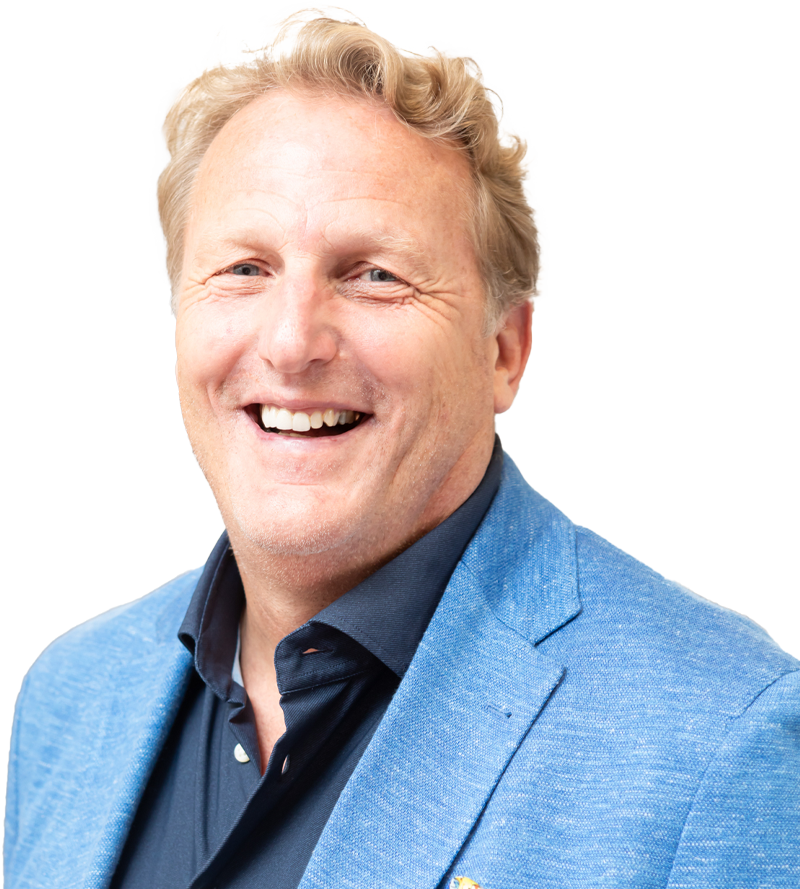Peter van der Velden Managing General Partner

My Backstory
I was born in a small town just outside Toronto to immigrant parents who came to Canada with nothing but hopes for a better life. Their life experiences (including surviving the Depression and WWII (my father spent 3 years in a German work camp)) ultimately defined their values and behaviors. For my mother moving to Canada meant access to the higher education she craved and that she knew would not be available to her in Holland (she started her career as a nurse, became a teacher, and went on to get a PhD in Linguistics late in life). For my father, who had watched his father lose everything in the depression, the goal was a career in a country that offered more stability and certainty. They came to Canada with $150 and built a life. Neither spoke English, my father’s certifications as an accountant were not recognized and shortly after my sister was born my mother, sister and I were in a horrific car accident that left my mother in hospital for 4 months and my sister with permanent brain injuries that would forever define her life. Despite the challenges, my parents built successful careers, my father in government and my mother as a special education teacher. Two working parents in a household with a special needs child put unique demands on all of us, and for the first 2 decades of her life, I was really my sister’s only friend and playmate. Our relationship was the basis for me wanting to do something in the healthcare field.
By the time I started university, I was committed to the idea of a career in medicine or healthcare. But, by the time, I was completing my master’s in Pathology I realized that the lab and the hospital were not for me. Truly an inflection point. So, on the recommendation of a friend, I took the GMAT – no studying – got a good mark and went to do an MBA. Within weeks, I knew I had found my vocation. I loved everything about business, and finance and policy got me particularly engaged. I was fortunate, a professor who was on the board of Connaught Biosciences, Canada’s largest vaccine manufacturer, recruited me to the company allowing me for the first time to combine my vocation and passion. Within a year, I was working for the largest venture capital firm in the country and so began my journey…
“PASSION BROUGHT US HERE”.
My Reset
In June of 2019, with no warning, I transitioned from healthy to very very sick. Within 24 hours, I found myself fully incapacitated (no ability to walk or even feed myself), in the ICU with a diagnosis of Guillain-Barré Syndrome, and with a doctor telling my wife it would be “prudent” to get our affairs in order. The experience was truly transformative. 45 days in hospital, more than 1 year of rehab and recovery to learn to walk again, and trying recover a life that, at least for a while, felt like it might be lost. So many parts of this journey have re-shaped me, but none more so than spending countless hours each day rehabbing and connecting with other patients, learning of their journeys, their trials and tribulations, their successes and their failures. It was heartbreaking, humbling, inspiring and eye-opening. Every day since, those insights have offered me a new lens, perspective, and frankly appreciation for what we, and the entrepreneurs Lumira works with, do and why it all matters so very much.
What Drives Me Today
For me, passion engagement is a huge part of the equation. I want to work with people who share my values and passions, and who are truly driven every single day to build something that will ultimately be transformative for patients. But passion is not enough. I am also looking for people who can combine that passion with business/scientific acumen, processes, and leadership to turn vision into reality. It’s a huge ask, but the very best entrepreneurs we partner with do this seamlessly.
As a parent and proud Canadian, I also like to get deeper into the Canadian part of our business. It matters deeply to me that we build next-generation jobs and create a sustainable ecosystem that translates this country’s incredible innovations into transformative healthcare companies and impactful products for patients. As such, I believe we have a responsibility to proactively engage with governments and other key stakeholders in the shaping of smart policy that is influenced by those looking to better the country and the world, and not just those looking to put another dollar in their pockets. It is why I took on the role of transforming the CVCA in 2011, it is why I am so pleased to see the incredibly positive impact of programs like the Venture Capital Action Plan, and it’s why I lead our firm’s philanthropic engagement.
I am fundamentally of the view that this is a great time for what we do, and I believe we are just in the first innings of a transformation that will see great healthcare companies emerge as they leverage the knowledge of the past two decades while layering in the new technologies, data, and insights that will shape how they develop, deliver and administer next-generation technologies and treatments to patients.